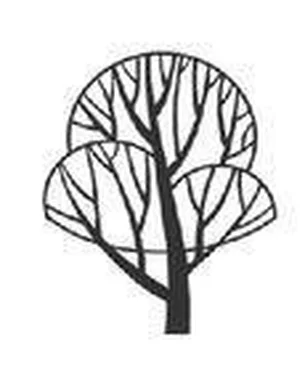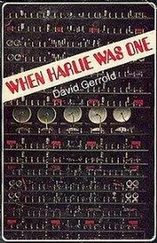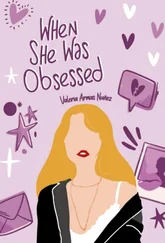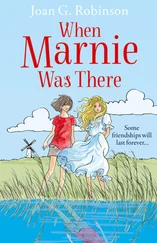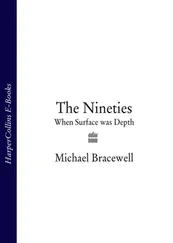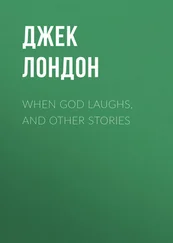Winman, Sarah - When God Was a Rabbit
Здесь есть возможность читать онлайн «Winman, Sarah - When God Was a Rabbit» весь текст электронной книги совершенно бесплатно (целиком полную версию без сокращений). В некоторых случаях можно слушать аудио, скачать через торрент в формате fb2 и присутствует краткое содержание. Жанр: Старинная литература, на английском языке. Описание произведения, (предисловие) а так же отзывы посетителей доступны на портале библиотеки ЛибКат.
- Название:When God Was a Rabbit
- Автор:
- Жанр:
- Год:неизвестен
- ISBN:нет данных
- Рейтинг книги:4 / 5. Голосов: 1
-
Избранное:Добавить в избранное
- Отзывы:
-
Ваша оценка:
- 80
- 1
- 2
- 3
- 4
- 5
When God Was a Rabbit: краткое содержание, описание и аннотация
Предлагаем к чтению аннотацию, описание, краткое содержание или предисловие (зависит от того, что написал сам автор книги «When God Was a Rabbit»). Если вы не нашли необходимую информацию о книге — напишите в комментариях, мы постараемся отыскать её.
When God Was a Rabbit — читать онлайн бесплатно полную книгу (весь текст) целиком
Ниже представлен текст книги, разбитый по страницам. Система сохранения места последней прочитанной страницы, позволяет с удобством читать онлайн бесплатно книгу «When God Was a Rabbit», без необходимости каждый раз заново искать на чём Вы остановились. Поставьте закладку, и сможете в любой момент перейти на страницу, на которой закончили чтение.
Интервал:
Закладка:
‘I know.’
‘That’s good, isn’t it?’ she said.
(It was that book again; the chapter called: ‘Hard Things to Tell Small Children’.)
‘Yes,’ I said quietly.
It was strange, her going away. Her presence in our young lives had been unequivocal, unfailing. Always there. We were her career, and long ago had she given up that other world, choosing instead to watch over us night and day in constant vigilance – her shield, she would one day tell us, against a policeman at the door, a stranger on the telephone, a sombre voice announcing that life had once again been torn apart: that unmendable rip that starts at the heart.
I sat on the bed, noting her qualities in a way most people would have reserved for an epitaph. My fear was as silent as her multiplying cells. My mother was beautiful. She had lovely hands that lifted the conversation when she spoke, and had she been deaf, her signing would have been as elegant as a poet speaking verse. I looked at her eyes: blue, blue, blue; same as mine. I sang the colour in my head until it swamped my essence like sea water.
My mother stopped and stretched and gently placed her hand on her breast; maybe she was saying goodbye to the lump, or imagining the cut. Maybe she was imagining the hand reaching in. Maybe I was.
I shuddered and said, ‘I’ve got a lump too.’
‘Where?’ she asked.
And I pointed to my throat, and she pulled me to her and held me, and I smelt the lavender that had escaped her shirts.
‘Are you going to die?’ I asked, and she laughed as if I’d told her a joke, and that laughter meant more to me than any No .
Aunt Nancy didn’t have any children. She liked children, or at least she said she liked us, and I often heard my mother say there was really no room in Nancy’s life for children, which I found quite odd, especially since she lived alone in quite a large flat in London. Nancy was a film star; not a massive one, by today’s standards, but a film star none the less. She was also a lesbian, and was defined as much by that as she was by her talent.
Nancy was my father’s younger sister, and she always said that he got the brains and the looks and she got whatever was left over, but we all knew that was a lie. When she flashed her film-star smile I could see why people were in love with her, because we all were actually, just a bit.
She was mercurial; her visits often fleeting. She’d simply turn up – sometimes out of nowhere – a fairy godmother whose sole purpose was to make things right. She used to share my bedroom when she stayed over and I thought life was brighter with her around. She made up for the blackouts the country was suffering from. She was generous, kind, and always smelt divine. I never knew the scent; it was just her. People said I looked like her and although I never said it, I loved the fact that I did. One day my father said that Nancy had grown up too quickly. ‘How can you grow up too quickly?’ I’d asked. He told me to forget it but I never did.
At the age of seventeen Nancy joined a radical theatre group and travelled around the country in an old van, performing improvised plays in pubs and clubs. Theatre was her first love, she used to say on chat shows, and we would huddle round the television and burst into laughter and shout, ‘Liar!’ because we all knew that it was Katherine Hepburn who was really her first love. Not the Kath a rine Hepburn, but a world-weary heavy-set stage manager who declared unencumbered love to her after a performance of their unpromising two-act play, To Hell and Back and That’s OK .
They were in a small village just outside Nantwich and their first encounter took place down the back alley of the Hen and Squirrel; it was a place usually reserved for urination but on that night, Nancy said, there was only the smell of romance in the air. They were walking side by side, carrying props back to the van when Katherine Hepburn suddenly pushed Nancy into the pebble-dashed wall and kissed her, tongues and all, and Nancy dropped her box of machetes and gasped at the speed of this feminine assault. Describing it afterwards, she said, ‘It felt so natural and sexy. Just like kissing myself’ – the ultimate accolade for an award-winning actress.
My father had never met a lesbian before, and it was unfortunate that K. H. should be his first, because his liberal cloak was pulled away to reveal an armoury of caricatured prejudice. He could never understand what Nancy saw in her, and all she ever said was that K. H. had amazing inner beauty, which my father said must be extremely hidden, since an archaeological dig working round the clock would probably have found it hard to discover. And he was right. She was hidden; hidden behind a birth certificate that said Carole Benchley. She was a self-confessed cinephile whose knowledge of films was surpassed only by her knowledge of mental health care within the NHS; a woman who frequently tiptoed across the celluloid line that kept Dorothy on the Yellow Brick Road and the rest of us tucked up safely in bed.
‘Sorry I’m late!’ shouted Nancy one day, as she rushed into a café to meet her.
‘Frankly, my dear, I don’t give a damn,’ said K. H.
‘That’s all right then,’ said Nancy, sitting down.
Then looking round, and with raised voice, K. H. said, ‘Of all the gin joints in all the towns, in all the world, she walks into mine.’
Nancy noticed the people in the café staring at them.
‘Fancy a sandwich?’ she said quietly.
‘If I have to lie, steal, cheat or kill, as God is my witness, I’ll never be hungry again.’
‘I’ll take that as a yes then,’ said Nancy, picking up a menu.
Most people would have instantly recognised the joyous pact that had been made with lunacy, but not Nancy. She was young and ever the adventurer, and went with the excitement of her first stirrings of lesbian love.
‘She was a great lover, though,’ my aunt used to say, at which point either my mother or father would stand up and say, ‘Anyway . . .’ and my brother and I would wait for the rest, but there never was any more, not until we were older, anyway . . .
I’d never known my father to cry before, and the night after my mother left would be his first. I sat at the bottom of the stairs eavesdropping on the conversation, and I heard his tears stutter between his words.
‘But what if she dies?’ he said.
My brother crept down the stairs and sat next to me, wrapping us both in a blanket still warm from his bed.
‘She’s not going to die,’ Nancy said commandingly.
My brother and I looked at each other. I felt his heart beat faster, but he said nothing; held me tighter.
‘Look at me, Alfie. She’s not going to die. Some things I know. You have to trust. This is not her time.’
‘Oh God, I’ll do anything,’ my father said, ‘ anything . I’ll be anything, do anything, if only she’ll be all right.’
And it was then that I witnessed my father’s first bargain with a God he never believed in. The second would come nearly thirty years later.
My mother didn’t die and five days later she returned to us looking better than we’d seen her in years. The biopsy had been a success and the benign lump quickly removed. I asked to see it – I’d imagined it black like coal – but my brother told me to shut up, said I was being weird. Nancy cried the moment my mother walked through the door. She cried at odd times and that was what made her a good actress. But in his room later that night, my brother told me it was because she had been secretly in love with my mother since the first time they had met.
He told me that she had gone to Bristol to spend the weekend with her brother (our father, of course) who was in his last year at university there. They had gone walking along the Mendip Hills, and when the numbing cold had entered their bones, they in turn entered a pub and sat, dazed, in front of a roaring hearth.
Читать дальшеИнтервал:
Закладка:
Похожие книги на «When God Was a Rabbit»
Представляем Вашему вниманию похожие книги на «When God Was a Rabbit» списком для выбора. Мы отобрали схожую по названию и смыслу литературу в надежде предоставить читателям больше вариантов отыскать новые, интересные, ещё непрочитанные произведения.
Обсуждение, отзывы о книге «When God Was a Rabbit» и просто собственные мнения читателей. Оставьте ваши комментарии, напишите, что Вы думаете о произведении, его смысле или главных героях. Укажите что конкретно понравилось, а что нет, и почему Вы так считаете.
